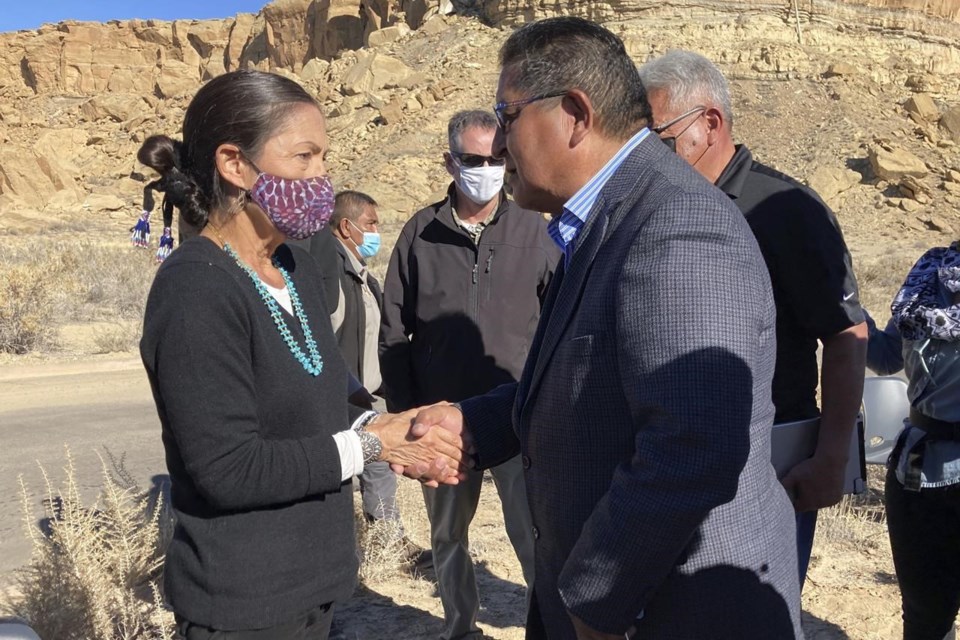ALBUQUERQUE, N.M. (AP) — The Biden administration’s approval of oil leases in a corner of New Mexico that has become a battleground over increased development and preservation of Native American sites has prompted a legal challenge.
Environmental groups are suing the Bureau of Land Management and U.S. Interior Secretary Deb Haaland. They contend in a complaint filed Wednesday that the federal government is going back on its word by clearing the way for oil and gas development on federal lands near Chaco Culture National Historical Park.
At issue are leases that span more than 70 square miles (180 square kilometers) in northwestern New Mexico. The groups say the federal government agreed in April to reconsider the Trump-era leases given their proximity to homes and an area held sacred by Navajos.
“We are disappointed that the Bureau of Land Management decided to double down on fracking and ignore the cumulative impacts, inequities and injustices of oil and gas leasing and drilling in the Greater Chaco (area),” Ally Beasley with the Western Environmental Law Center said in a statement.
The Bureau of Land Management said Thursday that the parcels in question are outside an informal 10-mile (16-kilometer) buffer zone around Chaco park that the agency has observed for years.
Under an initiative by Haaland, that buffer would be in effect for the next 20 years, prohibiting oil and gas development on federal land within that area.
Federal land managers are currently assessing the proposal, although Navajo Nation officials have argued for a smaller area to be protected because the tribe and its citizens benefit economically from oil and gas development.
Environmentalists have argue that the Bureau of Land Management has failed to consider the cumulative impacts of drilling in the area. Archaeologists and leaders of New Mexico pueblos with ancestral ties to the Chaco area also have concerns about damaging culturally significant sites that are outside the park's boundaries and the buffer zone.
A World Heritage site, Chaco park is thought to be the center of what was once a hub of Indigenous civilization with many Southwest tribes tracing their roots to the high desert outpost. Archaeologists have found evidence of great roads that stretched from Chaco across what are now New Mexico, Arizona, Utah and Colorado.
Haaland, who is from Laguna Pueblo in New Mexico, has talked about her own tribe's connection to the area. She visited last November and announced her agency's intentions to develop a landscape-level plan to protect the region’s cultural values.
The Bureau of Land Management, which is overseen by Haaland's agency, on Thursday reiterated its commitment to updating the environmental analysis that governs leasing in the area and promised that there would be more opportunities for public comment.
Susan Montoya Bryan, The Associated Press



